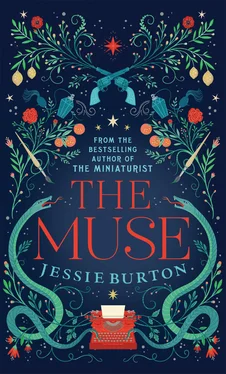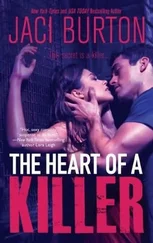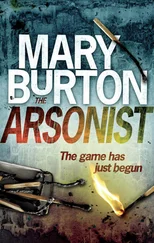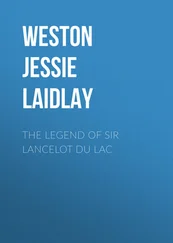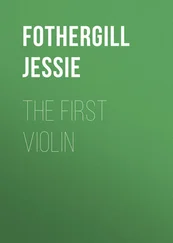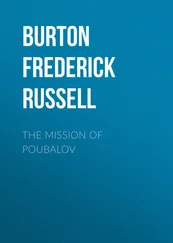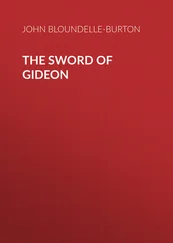‘Sounds good to me.’
‘It doesn’t seem obvious that Gerry lives here. Upstairs is a bit of a mess.’
‘That was my mother, more than him. I expect Gerry will sell the house.’
‘How long were they married?’
Lawrie poured more cider into our glasses. ‘Let’s see. I was fourteen — so that’s sixteen years.’
‘How did she die?’
Lawrie visibly prickled. I saw his closed expression, sensed his self-protection. I regretted the question immediately, feeling like a blunderer.
He placed the bottle down gently. ‘It’s hard to explain.’
‘You don’t have to. I shouldn’t have asked. I’m sorry.’ Now I was interfering, just like Quick.
‘My mother killed herself,’ Lawrie said, and the words weighed down the air between us, the kitchen’s atmosphere thickening to a soup. Looking at Lawrie, I saw how a ghost could suck the air from your throat.
‘I’m sorry,’ I said. ‘I’m so sorry—’
‘It’s all right. No, really, it’s all right. I would have told you eventually. Don’t apologize. I mean, don’t feel bad about it. In all honesty, it wasn’t that much of a surprise.’
I tried desperately to think of something to fill the silence, but the admission seemed to open something in him: ‘We tried to help. We were always trying. And now I can’t even look at bloody Gerry, because every time we look at each other I know he’s thinking, What if you’d done more? , and I’m thinking exactly the same. But it’s not his fault. It’s just a horrible game of blame.’
‘I can’t imagine it.’
‘Well, neither can I, and I was her son.’
He was very still, his voice very quiet, and I wanted to get up and give him a hug. But in the soupy air I felt unable to move, and I wasn’t sure he wanted one anyway. I thought of the kitchen at Cynth’s wedding, how Lawrie must have been reeling from his past two weeks — and me, mocking my own mother, rude when he tried to be nice about my poem—
‘Anyway, that’s that,’ he said. ‘But she was spirited, and she did a lot of things, and enjoyed herself a great deal, and that’s really why she reminds me of you. And now there’s her painting.’
‘Yes.’
‘So.’ He exhaled brusquely. ‘I’ve told you that . Jesus. I promise you that’s the worst. Now you tell me something.’
‘I don’t have anything.’
‘Everyone has at least one thing, Delly.’
I stayed quiet. He leaned back in his chair, fishing around in the dresser drawer behind him. ‘A-ha. Gerry always leaves a few lying around.’ He brandished a box of slim cigars. ‘Care to join?’
We went to the back room and Lawrie pushed open the French windows. The night was still fragrant with the smell of damp grass and wood smoke, bats dipping in and out of the garden.
‘It’s like paradise,’ I said, even enjoying the smothering scent of Lawrie’s cigar. I sat on the sofa and watched him, propping himself against the window frame.
‘I don’t know about that,’ Lawrie replied. ‘But one thing is — you can’t hear the road. When I was little, my favourite book was Peter Pan . I used to pretend this garden was Neverland.’
‘And was Gerry Captain Hook?’
‘Ha, no, this was before Gerry. It was just me and Mum at that point.’
‘I was just with my mother too.’
He turned to me. ‘What happened to your dad in the war?’
Given what Lawrie had told me about his mother’s suicide, I felt I had to dredge it up, although I really didn’t want to. ‘Well,’ I said. ‘My dad sold his bicycle and trumpet to pay for his passage to England in ’41. He walked to the Air Ministry, passed the medical, and got himself twelve weeks’ basic training. He served as an air gunner in the RAF. Then three years later, my mother found his name chalked on the death board in Port of Spain.’
He came over, and put his hand on my shoulder; it was warm, and I focused on it with particular concentration. ‘I’m sorry, Odelle,’ he said.
‘Thank you. I don’t remember him, but I know what it was like not to have him. My mother took it bad.’
He sat beside me. ‘What was it like, on the island, in the war?’
‘People were terrified what would happen if Hitler won. We’ve got one of the largest oil refineries in Trinidad. U-boats were already torpedoing British ships off our coastline.’
‘I didn’t know that.’
‘We knew what Hitler wanted; the plan for a master race. We were always going to want to fight. My dad was no exception.’ I sipped on my cider. ‘England wasn’t too keen on the colonies helping out at first, but as things turned bad they wanted the help.’
‘Do you think you’ll go back?’
I hesitated. Most English people I’d met would ask me questions about the island with the expectation that I should fit the complexity of Trinidad into my single body for their benefit. None of them had ever been there, so to them we were specimens of curiosity, realities risen from a tropical Petri dish that until very recently sat under a British flag. Most of the time, as with Pamela, the Englishers’ interest was not malicious (except when it was) — but their questioning always served to make me feel different , when I’d been brought up to feel perfectly understanding of British ways, because I was a child of empire too.
In the time I’d known him, Lawrie hadn’t asked me a thing about Trinidad. I didn’t know whether he was being polite, or whether he was genuinely uninterested — but either way, I was mainly glad of his failure to highlight our differences in life experience. I’d learned Latin and read Dickens, but I’d also seen the lighter-skinned girls get more of the boys’ attention, in a way the boys probably didn’t even understand themselves. Most of our ‘differences’ had been created by the white skin of the English. And yet, by the shores of the Thames, the complexity of our island life was reduced to one phenotype: black .
Practically every Englishman, even the enlightened ones, believed we would have more in common with a Sudanese than with them. But what did I know of the Sahara, of a camel or a Bedouin? My ideal of beauty and glamour for my entire childhood was Princess Margaret. With Lawrie, I’d talked about James Bond films, or my strange boss, or the painting, or Gerry the Bastard, dead parents. Stuff that bound us together as a duo, that didn’t make me a representative of a whole island that I hadn’t seen for five years. When Lawrie didn’t ask me about Trinidad, I felt more of an individual again.
‘Odelle?’
‘Let me tell you about London,’ I said.
‘OK.’
‘When I first got here,’ I went on, ‘I could not believe the cold.’ Lawrie laughed. ‘I’m serious, Lawrie. It was like the Arctic. Cynth and I arrived in January .’
‘Of all the months.’
‘I know. When I was a little girl, I was Autumn in a school play about the seasons. I didn’t even know what autumn was , let alone winter.’
I was quiet for a minute, remembering my smaller self, in her little boater and English pinafore, telling her mother she needed ‘russet leaves’ pinned to a leotard — and my mother, who had no idea either what frost on the tips of grass might look like, what a conker was, how it felt to inhale London’s November air and feel a sliver of ice in your lung — doing her darnedest to make this English costume in the humid Caribbean.
‘I remember,’ I went on, warming to this reminiscence, feeling that I could do this with Lawrie, that I was safe — ‘an early day I was here — a feller saying to me in the shoe shop, “Your English is very good.” My English ! I told him, “English is a West Indian language, sir.” ’
Читать дальше
